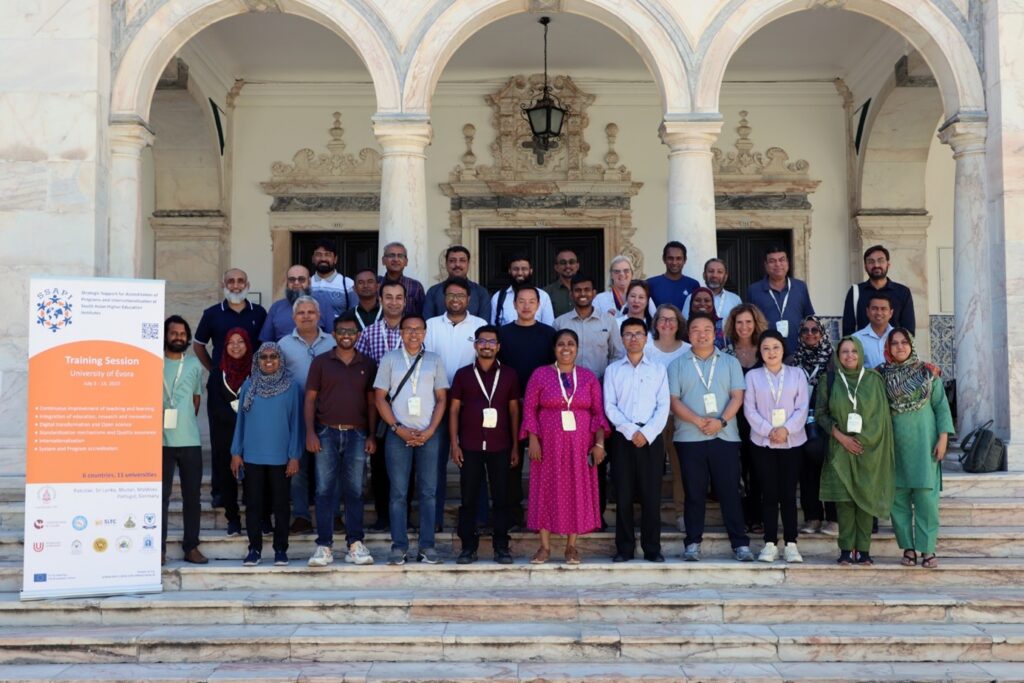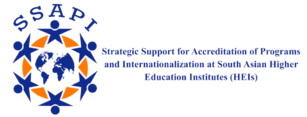Location: Évora, Portugal
Date: 15 July, 2023
SSAPI, ERASMUS, University of Évora(UEvora), Portugal.
In a collaborative effort to strengthen the educational landscape in South Asian Higher Education Institutes (HEIs), the University of Évora successfully concluded a two-week capacity building training from July 3 to 14, 2023. The training, an integral part of the Strategic Support for Accreditation of Programs and Internationalization (SSAPI) project, aimed at enhancing the capabilities of partner institutions in Sri Lanka, the Maldives, Pakistan, and Bhutan.
The SSAPI project, funded by the Erasmus+ Programme of the European Union and spanning the years 2021 to 2023, envisions transforming the academic paradigms of participating HEIs. The initiative seeks to provide learning and practice opportunities for various stakeholders, including administrative staff, faculty, students, and researchers.
This recent training initiative hosted at the University of Évora brought together 46 participants from the partner institutions. Over the course of 20 sessions, distinguished academic staff from Évora University and the University of Bremen shared their expertise on key facets such as quality assurance, internationalization, and the modernization of education systems.
The training placed a significant emphasis on developing academic programs that adhere to international benchmarks, establishing quality standards, and providing constructive feedback on programs submitted by partner HEIs. Moreover, guidelines for improving overall program quality and fostering internationalization were at the forefront of the discussions.
The SSAPI project involves a collaborative effort among several prestigious institutions, including the Capital University of Science and Technology, Pakistan; the University of Bremen (UniHB), Germany; the National University of Computer and Emerging Sciences, Pakistan; Riphah International University, Pakistan; the University of Peradeniya, Sri Lanka; Sri Lanka Technological Campus; Khesar Gyalpo University of Medical Sciences of Bhutan; the Royal University of Bhutan; Villa College, Maldives; and the National University of the Maldives.
A total of 46 participants from these universities actively engaged in the training, fostering a sense of collaboration and knowledge exchange among the diverse institutions involved in the SSAPI project.
The capacity building training marks a significant milestone in the SSAPI project, setting the stage for transformative changes in higher education across the participating nations. As the project progresses, the impact of this collaborative effort is expected to resonate within classrooms and academic corridors, contributing to the advancement of educational standards and fostering cross-cultural understanding among students and educators alike.

